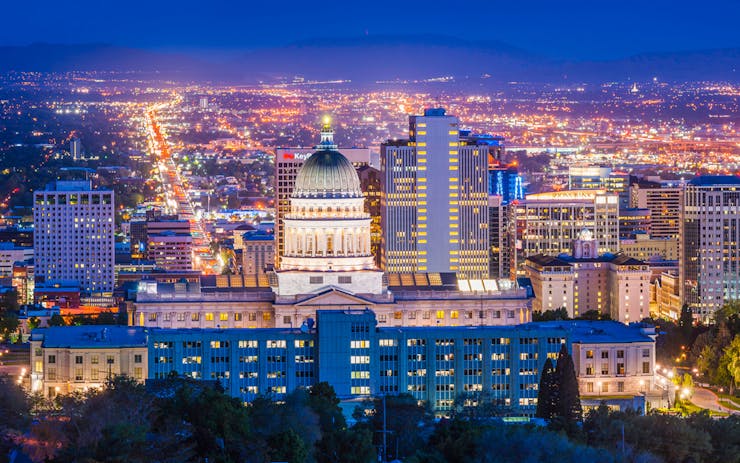SALT LAKE CITY (AP) — Utah patients can use medical marijuana legally after a compromise agreement was signed into law, but they likely won’t be able to buy it legally until at least 2020, officials said Tuesday.
The state will need time to first build up a database to start issuing patients medical-cannabis cards, and then begin granting licenses for dispensaries, health department spokesman Tom Hudachko said. The first license for a private dispensary must be awarded by June 2020, though authorities are aiming to do it faster.
But people who have bought permitted forms of medicinal marijuana, like cube-shaped gummies and oils, with a doctor’s recommendation now have legal protections.
“We did not want them to be considered criminals for the next year or two while they wait for the bureaucracy,” said Connor Boyack with the group Libertas Institute, who helped draft a legalization law passed by voters in November.
Until medical cannabis cards become available, patients can carry a letter from their doctor recommending use of the drug.
Lawmakers passed sweeping changes to the law Monday under a compromise deal that was arranged before Election Day and won the support of the influential Mormon church. Utah Gov. Gary Herbert quickly signed it into law, calling it the “best-designed medical cannabis program in the country,” and directed the state to implement it as soon as possible.
Some advocates, though, say the agreement makes it too difficult for patients to access the drug and have vowed to sue. The changes ban many marijuana edibles, prevent people from growing their own marijuana if they live far from a dispensary and narrow the list of eligible medical conditions for which the drug can be obtained.
The deadlines for opening dispensaries are largely the same as those written into the original bill, Boyack said. They call for the state to begin issuing medical cannabis cards in March 2020 and start a state-run central dispensary later that year.
The compromise cuts the number of private dispensaries from 15 to seven. But if the state doesn’t create its central dispensary by January 2021, more private licenses will begin becoming available.
Desiree Hennessy with the Utah Patients Coalition said she wanted the original law to say intact, but the new is a platform she’s hoping to build upon. Hennessy is planning to get a doctor’s letter to use medical marijuana to treat her son Hestevan, whose cerebral palsy leaves him with severe disabilities and bouts of nerve pain that leave him screaming for hours. Cannabis has been the only effective treatment, she said.
“This is our one shot, so it’s pretty awesome,” she said.






